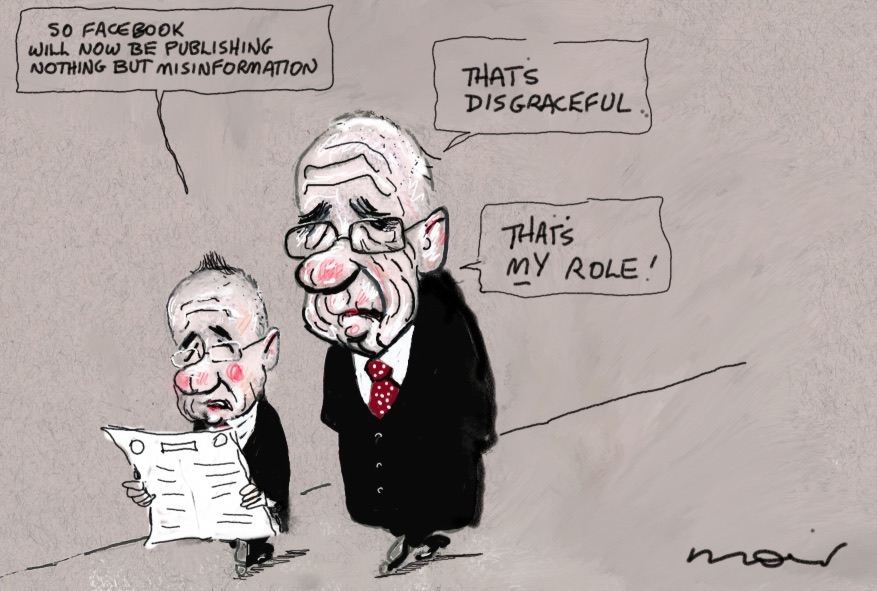What Is Availability Bias?

- Dec 24, 2021 modified: Feb, 17 2025
What Is Availability Bias?
Availability Bias is the impact our most vivid experiences or memories have on our decision-making. Availability bias is also likely to be the cognitive process that forms our confirmation biases (we find evidence of things we already believe).
Confirmation Bias is a type of cognitive bias where a person favours information that confirms their pre-existing beliefs or ideas.
A person with a confirmation bias is more likely to seek out, interpret, absorb and remember information that supports their established views; for example, a person who holds a belief that intelligence is determined by a person’s skin colour or gender.
Confirmation bias makes people less likely to engage with information that inverts, challenges or contradicts their existing view.
What we remember most vividly in our past influences our future. That's the power of personal experience.
The stories, memories, and examples that are easily available to us guide the decisions we make, the stories we tell, and how we position ourselves in the world.
This is called "availability bias." And we can either succumb to this common mental error or learn to use it in our favour...
The concept of availability bias, also called the 'availability heuristic', was discussed in detail by Charlie Munger in his 1995 speech at Harvard University, The Psychology of Human Misjudgement(sic), using the term 'availability-misweighing tendency'.
Charles Thomas Munger (b.1924) is an American billionaire investor, businessman and former real estate attorney. He is vice chairman of Berkshire Hathaway, the conglomerate controlled by billionaire businessman and investor, Warren Buffett, who described Munger as his closest partner and right-hand man.
An availability bias or 'heuristic' is a mental shortcut that relies on our tendency to use information that comes to mind quickly and easily when evaluating a specific topic, concept, method or making decisions about the future.
Our availability bias tends to place too much importance on the facts and information we can easily remember, especially those formed by our confirmation biases. Availability bias places less importance on the facts not immediately available to us.
"The great algorithm to remember in dealing with this tendency is simple: An idea or a fact is not worth more, merely because it is easily available to you."
Munger addresses the importance of recognizing patterns and influences to determine how humans behave, both rationally and irrationally.

Fear of Flying
For instance, excessive coverage on the news or social media about plane crashes uses vivid images and stories to elicit an emotional response. Some people develop a fear of flying because they remember those images the next time they fly.
Statistics contradict this fear of the danger of flying. The chances of experiencing a plane crash on a commercial airline are statistically very low.
But data doesn't speak emotionally to many of us. It's much easier to remember the vivid images of the destruction of a plane crash and the deaths of victims or the verbal descriptions of the survivors, if there are any.
Availability bias makes those plane crash images easily accessible, causing an irrational fear of flying in some people.

Climate Change Denial
Following an unseasonably cold day during Summer tabloid newspapers, TV and Radio talk-show hosts and climate change sceptics tend to use that one cold day as an example of climate change and global warming being a hoax.
Certain politicians constantly make the claim that climate change is 'fake news'. They underweight larger data sets that cover long periods of time over a vast array of geographic locations and overweight their individual short-term anecdotal experiences. They exploit that one cold day for party-political purposes because it is more vivid and memorable to listeners than the incremental temperature rises over time that are provided in detailed meteorological data.
In contradiction of the facts, this use of availability bias feeds the confirmation bias of those who continue to believe climate change is a hoax or are uncertain and uniformed about the science of climate change.
A Checklist
Munger established a checklist of twenty-five standard causes of human misjudgement that may lead to availability bias:
1. Reward and Punishment Super-response Tendency
2. Liking/Loving Tendency
3. Disliking/Hating Tendency
4. Doubt-Avoidance Tendency
5. Inconsistency-Avoidance Tendency
6. Curiosity Tendency
7. Kantian Fairness Tendency
8. Envy/Jealously Tendency
9. Reciprocation Tendency
10. Influence-from-Mere-Association Tendency
11. Simple, Pain-Avoiding Psychological Denial
12. Excessive Self-Regard Tendency
13. Overoptimism Tendency
14. Deprival-Super-reaction Tendency
15. Social-Proof Tendency
16. Contrast-Misreaction Tendency
17. Stress-Influence Tendency
18. Availability-Misweighing Tendency
19. Use-It-or-Lose-It Tendency
20. Drug-Misinfluence Tendency
21. Senescence-Misinfluence Tendency
22. Authority-Misinfluence Tendency
23. Twaddle Tendency
24. Reason-Respecting Tendency
25. Lollapalooza Tendency—The Tendency to Get Extreme
It is beyond the scope of this article to breakdown and describe all 25 tendencies that feed availability bias; however, it is interesting to note that Munger's focus on the "lollapalooza tendency", a combination of several tendencies that power psychological misjudgements in favour of a particular and often extreme outcome.

Tendency Towards Extremism
According to Munger the Lollapalooza Effect, or confluence of multiple biases, is the tendency toward extremism that results from such confluences. These biases can occur at both conscious and subconscious levels.
Munger declares,
"Pure curiosity… made me wonder how and why destructive cults were often able, over a single long weekend, to turn many tolerably normal people into brainwashed zombies and there-after keep them in that state indefinitely."
A cult leader's purpose is to achieve conformity and compliance. They use the Lollapalooza Tendency (multiple biases) to de-sensitize and control their followers and potential recruits for the further abuse and psychological manipulation to come.
The following examples reveal of some of Munger's checklist of availability bias techniques that have been used by political and cult leaders:
1. Reward and Punishment Super-response Tendency
This is the use of persuasion through an appeal to interests and rewards or avoidance of punishment rather than to reason.
Although money is the main driver among rewards, it is not the only reward that works. People also change their behaviour and cognition for the promise of sex, friendship, companionship, advancement in status, and other non-monetary items and to avoid punishment.
2. Liking/Loving Tendency
One very practical consequence of Liking/ Loving Tendency is that it acts as a conditioning device that makes the liker or lover tend to
(1) ignore faults of, and comply with wishes of, the object of their affection,
(2) favour people, products, and actions merely associated with the object of their affection, and
(3) distort other facts to facilitate love.
The phenomenon of liking and loving causing admiration also works in reverse.
Admiration also causes or intensifies liking or love. With this "feedback mode" in place, the consequences are often extreme, sometimes even causing deliberate self-destruction to help what or who is loved.
3. Disliking/Hating Tendency
Disliking/Hating Tendency acts as a conditioning device that makes the disliker/hater tend to
(1) ignore virtues in the object of dislike,
(2) dislike people, products, and actions merely associated with the object of their dislike, and
(3) distort other facts to facilitate hatred.
4. Doubt-Avoidance Tendency
While recognising that humans have a strong Doubt-Avoidance Tendency, it is logical to believe that at least some leaps of religious faith are greatly boosted by this tendency. Even if one is satisfied that their own faith comes from revelation, one still must account for the inconsistent faiths of others and therefore avoid those people and their faiths
5. Inconsistency-Avoidance Tendency
Education is one long exercise in augmentation of high cognition so that our wisdom becomes strong enough to destroy wrong thinking maintained by resistance to change.
People tend to accumulate large mental holdings of fixed conclusions and attitudes that are not often re-examined or changed, even though there is plenty of good evidence that they are wrong.
Tough initiation ceremonies can intensify bad contact as well as good. The loyalty of the new, "made-man" mafia member, or of the military officer making the required "blood oath" of loyalty to Hitler, was boosted through the triggering of Inconsistency-Avoidance Tendency.
This tendency will often make people a "patsy" of manipulative "compliance-practitioners," who gain advantage from triggering the subconscious Inconsistency-Avoidance Tendency.
12. Excessive Self-Regard Tendency
Some of the worst consequences in modern life come when dysfunctional groups of cliquish persons, dominated by Excessive Self-Regard Tendency, select or recruit people who are very much like themselves as new members of their organizations.
According to Tolstoy, the worst criminals don't appraise themselves as all that bad. They come to believe either
(1) they didn't commit their crimes or
(2) considering the pressures and disadvantages of their lives, it is understandable and forgivable that they behaved as they did and became what they became.
15. Social-Proof Tendency
The otherwise complex behaviour of humans is much simplified when they automatically think and do what they observe as being thought and done around them.
This followership often works fine. For instance, what simpler way could there be to find out how to walk to a big football game in a strange city than by following the flow of the crowd.
For some such reason, human evolution left us with Social-Proof Tendency, an automatic tendency to think and act as we see others around us thinking and acting.
22. Authority-Misinfluence Tendency
Historically, human society has been formally organized into dominance hierarchies. Living in dominance hierarchies (like all our ancestors)humans are born mostly to follow leaders with only a few people doing the leading.
But as automatic as most human reactions are, with the tendency to follow leaders being no exception, people are often destined to suffer greatly when the leader is wrong or when their leader's ideas don't get communicated properly or are misunderstood.
And so, we find much miscognition from the Authority-Misinfluence Tendency.
(adapted from Charlie Munger, The Psychology of Human Misjudgement)

How Availability Bias is used to Influence Others
Telling someone an exciting and vivid story is a strong technique for convincing someone of something:
"Stories that use visual language and elicit the senses of the reader are powerful. They can influence how someone thinks about a problem or solution, and you can use stories to push your reader or listener in a particular direction."
The Trump-QAnon phenomenon
The multiple availability biases used by cult, political and religious leaders (including the examples above) were employed by Donald Trump throughout his term as the USA President, especially in the lead up to and aftermath of the 2020 USA Presidential elections.
Trump was aided and abetted by the confluence of availability biases employed by the QAnon cult, complemented by their extreme and visually evocative online stories.
Once a fringe phenomenon and mostly ignored, QAnon has more recently gone mainstream.
In 2020, QAnon supporters flooded social media with false information about Covid-19, the Black Lives Matter protests and the presidential election, and recruited masses of new believers to their ranks.
The original QAnon posts were written by an individual known simply as "Q" who claimed to be a high-ranking government insider with access to classified information about Donald Trump's war against a global sex trafficking and paedophile cabal. Ironically, Trump at the time was publicly supporting his 'good friend' Jeffrey Epstein who had been arrested and charged with child sex trafficking offences over a period of decades.
QAnon has now become the umbrella term for a set of internet conspiracy theories that falsely allege the world is run by a cabal of Satan-worshiping paedophiles.
When a large, makeshift medical facility was set up near New York's Central Park in April 2020, most Americans accepted it at face value: a treatment centre for COVID-19 patients.
Just hours after the white tents appeared, followers of the conspiracy theory known as QAnon concocted this elaborate story: in a network of underground tunnels beneath Central Park, children had been bred and raised for sexual slavery.These "mole children" were raised underground, kept in cages, destined to feed the dark desires of an elite society of devil worshippers. The Trump administration was fighting back, however: the president had given orders for military special forces to storm the tunnels and liberate the children.
The earliest QAnon devotees were mainly far-right Trump supporters, but in 2020, "the movement expanded its reach to include health-conscious yoga moms, anti-lockdown libertarians and evangelical Christians."
Followers of the QAnon movement participated in the deadly US Capitol riots in January 2021. Many who participated in the riots [apparently with Trump's support and/or encouragement] have since been arrested and charged with sedition and other crimes. QAnon believers have also been charged with other violent crimes, including kidnappings and assassination plots.
QAnon has been compared to a massive multiplayer online game, because of the way it invites participants to cocreate a shared reality filled with recurring characters, shifting story lines and intricate puzzle-solving quests.
QAnon has also been compared to a church, in that it provides its followers with a social support structure as well as an organising narrative for their everyday lives.
(adapted from Kevin Roose. What Is QAnon, the Viral Pro-Trump Conspiracy Theory?)
All the evidence of the use of availability bias techniques, including the vivid storytelling that these biases invite in order to shore up the confirmation biases of susceptible people, are still appearing in the worlds of Trump and QAnon while governments continue to deal with the chaos and uncertainties caused by the global Covid pandemic.
Avoiding Availability Bias
Individuals
Munger encourages the making of checklists as a means to counter heuristics or mental shortcuts. Pilots are renowned for ticking off checklists before taking off:
"It is also essential for a thinking man [sic] to assemble his skills into a checklist that he routinely uses. Any other mode of operation will cause him to miss much that is important."
Munger also encourages us to focus on the abstract in addition to the concrete to avoid ignoring disconfirming evidence found in more abstract forms:
"What should be done is to especially emphasize factors that don't produce reams of easily available numbers, instead of drifting mostly or entirely into considering factors that do produce such numbers."
This leads us to look for evidence that may discount our previous findings:
"Still another antidote is to find and hire some sceptical, articulate people with far-reaching minds to act as advocates for notions that are opposite to the incumbent notions."
Waschenfelder points out that Charles Darwin was famous for looking for disconfirming evidence while collecting data. This helped Darwin to avoid confirmation bias and availability bias when drafting his conclusions.
Charles Darwin's avoidance of confirmation bias has morphed into the extreme anti-confirmation-bias method of "double blind" studies now required in drug research, medical and scientific experiments.
Inversion is the practice of thinking through problems in reverse. Inversion is used in algebra where an equation can be easier to solve if it is inverted. Inversion can also be applied to non-maths problems.
"If you are leaning in one direction in a big decision, invert the problem. Ask yourself - how could I be wrong? How could this GO wrong? And then consider the consequences."
Munger also recommends we 'underweigh' rather than 'overweigh' memorable evidence or experiences.
"One consequence of this tendency is that extra- vivid evidence, being so memorable and thus more available in cognition, should often consciously be under weighed while less vivid evidence should be overweighed."
If you can remember something easily, put less importance on it when it comes to making a decision.
Project Managers
Project managers need to be aware of when they may be most in danger of availability bias. The first step in managing availability bias is to become aware of it and then implement strategies such as the following to avoid it:
- Build a team with diverse experiences and points of view. This alone will limit availability bias because people will challenge one another's thinking naturally.
- Seek broad input from your team. Whether in group discussions, or by encouraging others to analyse problems from different perspectives, you can create an environment that works against availability bias.
- Set high standards for clear thinking. Be suspicious of the information that comes to you and demand that it passes your test for rigor, breadth and depth, and good management of availability bias.
- Utilize your network when making decisions. Allow others to bring perspectives to you that simply could not exist inside your organization.
- Take on an attitude of continuous learning and apply it on the job and demand it of others. This will thwart the laziness aspect of availability bias.
- People try to repeat what has worked for them in the past. What worked before may not work now. The variables may have changed significantly since the success of the past. Don't try to duplicate past processes and prior success with a new team.
(adapted from Decision Traps for Project Managers – How to Tame Availability Bias. Bright Hub PM. 2001)
"Psychological knowledge improves persuasive power and, like other power, it can be used for good or ill. Captain Cook once played a psychology-based trick on his seamen to cause them to eat sauerkraut and avoid scurvy.
In my opinion, this action was both ethical and wise under the circumstances, despite the deliberate manipulation involved. But ordinarily, when you try to use your knowledge of psychological tendencies in the artful manipulation of someone whose trust you need, you will be making both a moral and prudential error.
The moral error is obvious. The prudential error comes because many intelligent people, targeted for conscious manipulation, are likely to figure out what you are trying to do and resent your action."
Researched, Collated, Composed, Edited and Written by Dr Steve Gration. Dec. 2021.
Sources and References
Bright Hub PM. Decision Traps for Project Managers – How to Tame Availability Bias. 2001
https://www.brighthubpm.com/methods-strategies/129548-pms-tame-availability-bias/
Munger, Charlie. Poor Charlie's Almanack – The Wit and Wisdom of Charles T Munger. Ed. Peter D. Kaufman. fp 2005. Donning Co. Publishers, USA.
Munger, Charlie. The Psychology of Human Misjudgment. 1995 speech, Harvard University, USA. https://fs.blog/great-talks/psychology-human-misjudgment/
Schmidt, David. "Won't Somebody Please Think of the Children?". 2021
https://brooklynrail.org/2020/12/field-notes/Wont-somebody-please-think-of-the-children
Kevin Roose. What Is QAnon, the Viral Pro-Trump Conspiracy Theory? The New York Times. 3 Sept. 2021.https://www.nytimes.com/article/what-is-qanon.html
Waschenfelder, Thomas. Availability Bias: Making Decisions Based On Vivid Examples.
https://www.wealest.com/articles/availability-bias
Search News Articles...
Recent Articles

Keywords no longer as visible in GSC
- Jan 12 2026
- /
- 437

Unique Web Systems Matter in a World of Sameness
- Dec 26 2025
- /
- 311

Most AI Websites Fail to Rank
- Nov 18 2025
- /
- 568

Sitemap.xml Best Practices
- Oct 14 2025
- /
- 2660

Fake Reviews on Google My Business
- Oct 07 2025
- /
- 706

Sending Emails from Code
- Sep 17 2025
- /
- 760

US Tariff Shifts Undermining eCommerce
- Sep 05 2025
- /
- 939

Small Business Success Formula
- Aug 23 2025
- /
- 703

Do Strong CTAs Help or Hurt Your Website?
- Jul 31 2025
- /
- 922

AI Crawlers vs Search Crawlers
- Jul 04 2025
- /
- 1264
View All News Articles
Categories
A Gold Coast SEO and Web Developer